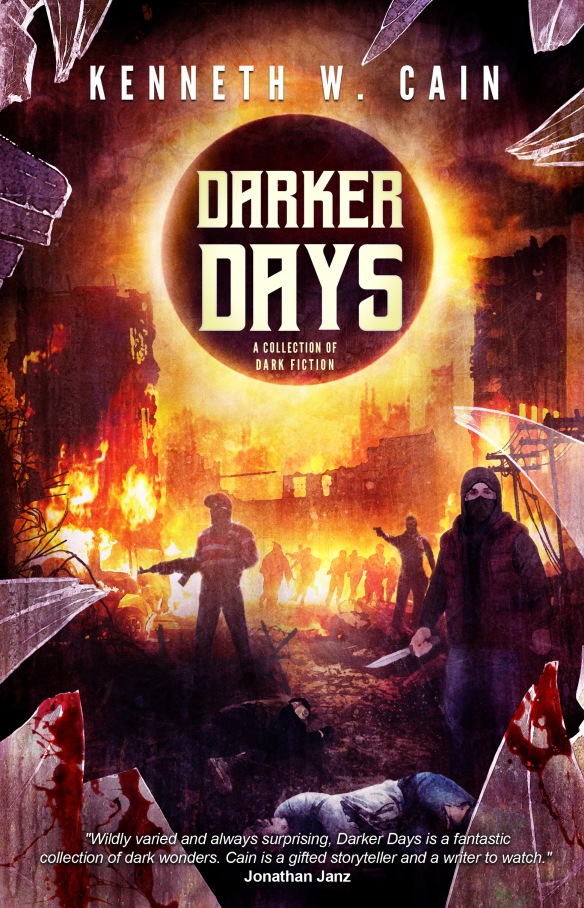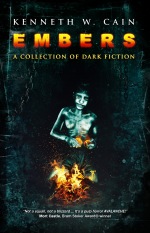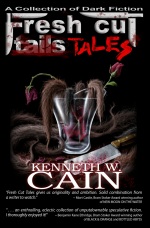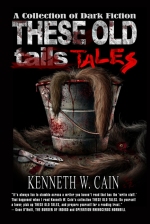
Q: I’ve read and enjoyed the poetry on your website, and I see you have won many awards as a poet. Being so successful on that platform, what drives you to long fiction?
BB: Actually, I’ve been publishing fiction, some of it long, for as long as I have poetry. My first novel, Stained Glass Rain, is over 140,000 words. I’ve also published more than a hundred short stories. I’ve always written both fiction and poetry. You can find most of my best stories collected in Masque of Dreams (Wildside Press, 2001, 2009) along with some of my best poetry.
Q: My own poetry suffers, likely due to the constant want to make the piece into a story. What shortcomings and downfalls might one expect to encounter when tackling both poetry and prose?
BB: When you tackle poetry seriously, you are looking at every word choice and every line break. And how they resonate with one another. If your poem starts turning into a story, you can either turn it into a story…write a long narrative poem…or compress it to the point where it works as a short poem, making every word count. You choice depends to some extent on where you feel your talents lie. I’d say that if the ideas and words are flowing for you, go with it, go for the story. If you decide it doesn’t work as a story, it’s generally easier to cut and refine what you’ve already written while you were on a roll than it is to add to it. I’ve had poems that I’ve later expanded to fictions and fictions that I’ve extracted poems from. I’d say there aren’t any shortcomings or downfalls if you take an open approach.
Q. I find this interesting, because the first section of The Guardener’s Tale came off so poetic to me. Was this your intention, or do you think this is merely the voice you were given coming out through your work?
BB: The Guardener’s Tale evolved out of a poem that originally appeared in Amazing Stories in the 80s. You can find the poem reprinted online at Membra Disjecta. The opening section of the novel draws heavily on this poem. Poetic language can enhance fiction if it is used in the right way. Some writers, such as Lawrence Durrell and Nabokov, are good reads for me in part because their language often reads like poetry.
Q. The indiscretion of Tuesdays was brilliant for me. I love the “Don’t ask, don’t tell” concept that allows a society the ability to let loose once a week, as if nurturing the human need to be bad. So, why Tuesdays?
BB: Tuesday is three days from Saturday and three days from Friday, the days when one is most likely to go out with one’s mate. So Tuesday seemed the most logical day to go out alone seeking other liaisons.
Q. I find it interesting, the comparison to a gardener, and their garden–creating a thing of beauty. In your tale, it is no different, except there are a variety of levels to these Guardeners, that in part appears to have something to do with age/experience. Also, the play on the word, using “guard” almost had me picturing storm troopers from Star Wars, but in actuality they are far from such armored monsters. On all levels, they are creating a garden of beauty together. I also found the widespread use of imagery that revolved on flowers in the story. Can you provide some insight into your creation of the Guardener as a social status and job?
BB: If you recall, some of the Guardeners do act like storm troopers when they invade the slum and evict residents from their dwellings. The higher level Guardeners are both police and psychiatrists, or at least with the help of technology they take on the role of psychiatrists. The Future Perfect, the garden of beauty they envision, is only perfect in terms of a society functioning without disruptions of any kind. In other words, a world were everyone has the same values and all serve a productive function within the system. It’s a bit like an insect colony, with no room for individuality or attitudes and ideas that run counter to the norm. Also akin to the ideal state once envisioned by the former Soviet Union. Much of art and literature of the Soviet Union from the 30s through the 50s, known as Socialist Realism, portrayed striving for an ideal communist society. Of course any society has its canon of what is considered acceptable behavior, which includes the content for art and literature. The more totalitarian the state, the more narrowly such a canon is defined. The Guardeners in The Guardener’s Tale are both guardians of their particular canon, and like gardeners in that they are trying to shape the future of the state by weeding out undesirable elements and shaping others. To extend the simile to an extreme, something like bonsai gardening.
Q. As a writer, I often find myself divulging opinions of how I think the future will look. Our present society can at times appear so limiting, and yet with modern day technology it is actually mind-blowing just how limitless it is. In your tale though, we have a world where technology has surpassed freedoms, and the City State must take control in order to ensure a successful future. Tell us a little bit about this concept. Is this how you envision the future of society?
BB: In the world of The Guardener’s Tale, although computers are used by government and business, they are forbidden to individuals, considered a negative freedom. There is no Internet as we know it. Despite all its faults, the Internet strikes me as a force for individual freedom and a barrier to government control. It creates a worldwide community that not only transcends national borders but can quickly exert political and social pressure. It disseminates information that the powers that be, any ruling government, would rather not have freely available to its citizens. It can be disruptive to a smoothly functioning society. WikiLeaks is a prime example of this.
Q. And what of reprogramming humans, as you mention in The Guardener’s Tale? Was this just you being creative, or is this yet another glimpse into where you think things are heading?
BB: There always seems to be an attempt by authoritarian forces of one kind or another to reprogram human nature to fit some socially acceptable norm. This is endemic to social systems. The Catholic Church served this function for centuries in Europe. Today, our basic natures are all reprogrammed to some extent by the mass media we are exposed to. A more specific example: the clinics that try to reprogram homosexuals to be heterosexuals. As to where we are headed, I’m not sure. If a technology evolves that can successfully reprogram humans, it’s hard to believe that a government would not attempt to make use of it to stabilize its power and achieve its goals.
Q. On your website it says that you are credited with coining the word “cybertext.” How does something like that transpire? I mean, did it just catch on from one of your tales or the like?
BB: I published a collection of poetry in 1992 titled Cybertexts. The prefix “cyber” is defined as “relating to information technology, computers or the Internet.” Many of the poems collected in Cybertexts have to do with human interaction with computers of one kind or another. However, at the time I wrote these poems, the Cyberpunk movement was still flourishing in science fiction, so the book also contains poems that applied to this, i.e., poems that described or reflected the world of that movement. Jump ahead a few years to 1997. Norwegian Professor Espen J. Aarseth, odds are totally unaware of my poetry collection, published a book titled Cybertext—Perspectives on Ergodic Literature. In this study, Aarseth defined “cybertext” as referring to texts that require an involvement on the part of the reader. For example, a text that poses questions to the reader and then proceeds with further text in response to the answers given, and so forth. This is the sense in which the term “cybertext” is used most commonly today. I coined the word, was the first to use it. Aarseth defined it more specifically in its contemporary usage.
Q. What might we expect from you in the future? Another book? More poetry?
BB: My latest collection of poems, Surrealities, should be out any day from Dark Regions Press. This is not a horror or science fiction collection, but all surreal poems and poems about surrealism. It’s also a departure for me in that I illustrated this collection myself with original Rorschach inkblots. You can find the illustrations online HERE.
Beyond that, Gary Crawford and I are compiling a shared-world collection of dark poetry and prose, working title Notes from the Shadow City.
—————————————————————————————————-
Well Bruce, I’d also like to thank you for stopping by and giving us a quick glimpse into The Guardener’s Tale. I would recommend this book to anyone looking for a good futuristic dystopian tale. You can find out more about Bruce on his WEBSITE.
BUY BRUCE’S WORK DIRECTLY FROM AMAZON BY CLICKING ON ANY IMAGE BELOW:

















 winner
winner












